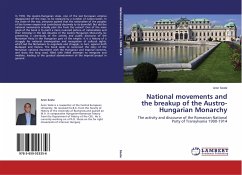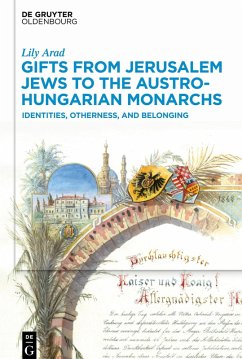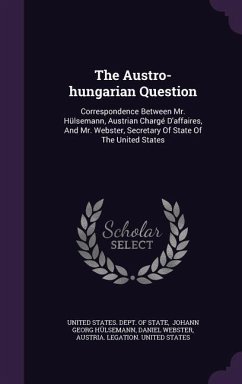
National movements and the breakup of the Austro-Hungarian Monarchy
The activity and discourse of the Romanian National Party of Transylvania 1900-1914
Versandkostenfrei!
Versandfertig in 6-10 Tagen
36,99 €
inkl. MwSt.

PAYBACK Punkte
18 °P sammeln!
In 1918, the Austro-Hungarian state, one of the last European empires disappeared off the map, to be replaced by a number of nation-states. In the wake of the war, everyone agreed that the nationalism of the peoples of the former empire had contributed decisively to its downfall. But did the national movements actually plan this from the outset? One of the main goals of the book is to paint a more nuanced picture of nationalisms and their interplay in the last decades of the Austro-Hungarian Monarchy, by presenting a case-study of the activity and public discourse of the Romanian Party in the ...
In 1918, the Austro-Hungarian state, one of the last European empires disappeared off the map, to be replaced by a number of nation-states. In the wake of the war, everyone agreed that the nationalism of the peoples of the former empire had contributed decisively to its downfall. But did the national movements actually plan this from the outset? One of the main goals of the book is to paint a more nuanced picture of nationalisms and their interplay in the last decades of the Austro-Hungarian Monarchy, by presenting a case-study of the activity and public discourse of the Romanian Party in the Hungarian part of the empire. It is a history of a struggle for national emancipation and recognition of cultural rights, which led the Romanians to negotiate and struggle, in turn, against both Budapest and Vienna. The book seeks to reconnect the story of the Romanian national movement with the Hungarian and imperial contexts, and show the long road, filled with failed attempts to integrateand mediate, leading to the gradual abandonment of the imperial project in general.








![The Austro-Hungarian Empire and the Policy of Count Beust: A Political Sketch of Men and Events From 1866 to 1870, by an Englishman [H. De Worms] Cover The Austro-Hungarian Empire and the Policy of Count Beust: A Political Sketch of Men and Events From 1866 to 1870, by an Englishman [H. De Worms]](https://bilder.buecher.de/produkte/68/68656/68656712n.jpg)

![Exciting Personal Experiences; Europe at war, Thrilling Stories of the Great Battles of the World and the Greatest war of all Wars. Showing the Causes That led up to it, Including the Assasination [!] of the Heir to the Austro-Hungarian Throne and his Wif Cover Exciting Personal Experiences; Europe at war, Thrilling Stories of the Great Battles of the World and the Greatest war of all Wars. Showing the Causes That led up to it, Including the Assasination [!] of the Heir to the Austro-Hungarian Throne and his Wif](https://bilder.buecher.de/produkte/69/69260/69260995n.jpg)

